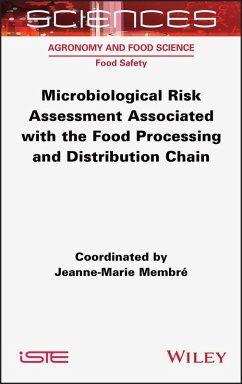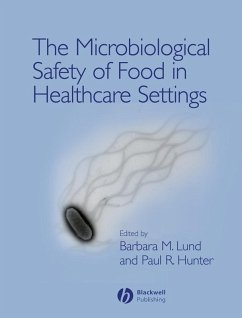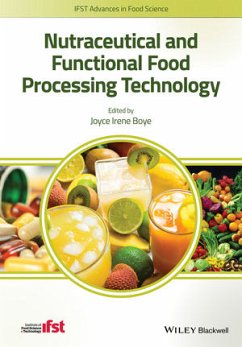
Microbiological Risk Assessment Associated with the Food Processing and Distribution Chain (eBook, PDF)
Versandkostenfrei!
Sofort per Download lieferbar
126,99 €
inkl. MwSt.
Weitere Ausgaben:

PAYBACK Punkte
0 °P sammeln!
According to the World Health Organization, one in every ten people worldwide falls ill from eating contaminated food every year, with 550 million cases of diarrheal diseases. Microbiological risk assessment aims to characterize the nature and probability of harm resulting from human exposure to the biological agents that are present in foodstuffs. This assessment must take into account all stages of the chain: from the production of raw materials to consumption. After briefly introducing food safety and risk assessment, this book details the four major steps of microbiological risk assessment...
According to the World Health Organization, one in every ten people worldwide falls ill from eating contaminated food every year, with 550 million cases of diarrheal diseases. Microbiological risk assessment aims to characterize the nature and probability of harm resulting from human exposure to the biological agents that are present in foodstuffs. This assessment must take into account all stages of the chain: from the production of raw materials to consumption. After briefly introducing food safety and risk assessment, this book details the four major steps of microbiological risk assessment. The contributors first present hazard identification and then exposure assessment, which is subdivided into methods for the detection and enumeration of pathogens and for the quantification of the level of exposure. Then, hazard characterization is subdivided into pathogenicity mechanisms and quantification of the dose-response relationship. Finally a guide for microbiological risk characterization is provided. The conclusion presents possible development avenues for microbiological risk assessment, particularly its integration into a holistic assessment of food systems.
Dieser Download kann aus rechtlichen Gründen nur mit Rechnungsadresse in A, B, BG, CY, CZ, D, DK, EW, E, FIN, F, GR, HR, H, IRL, I, LT, L, LR, M, NL, PL, P, R, S, SLO, SK ausgeliefert werden.
Dieser Artikel kann nur an eine deutsche Lieferadresse ausgeliefert werden.













